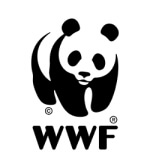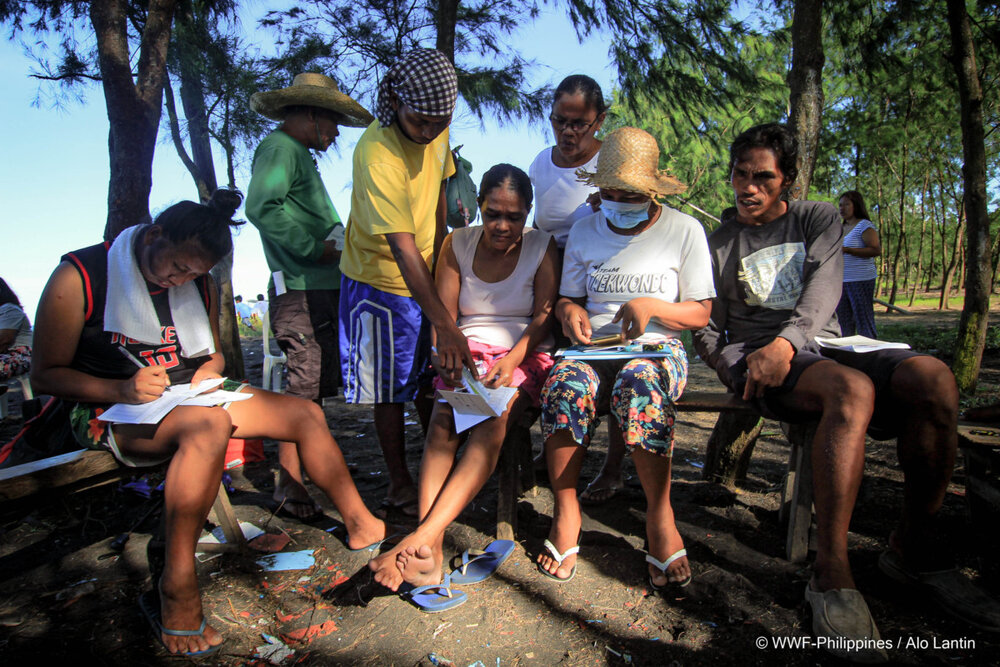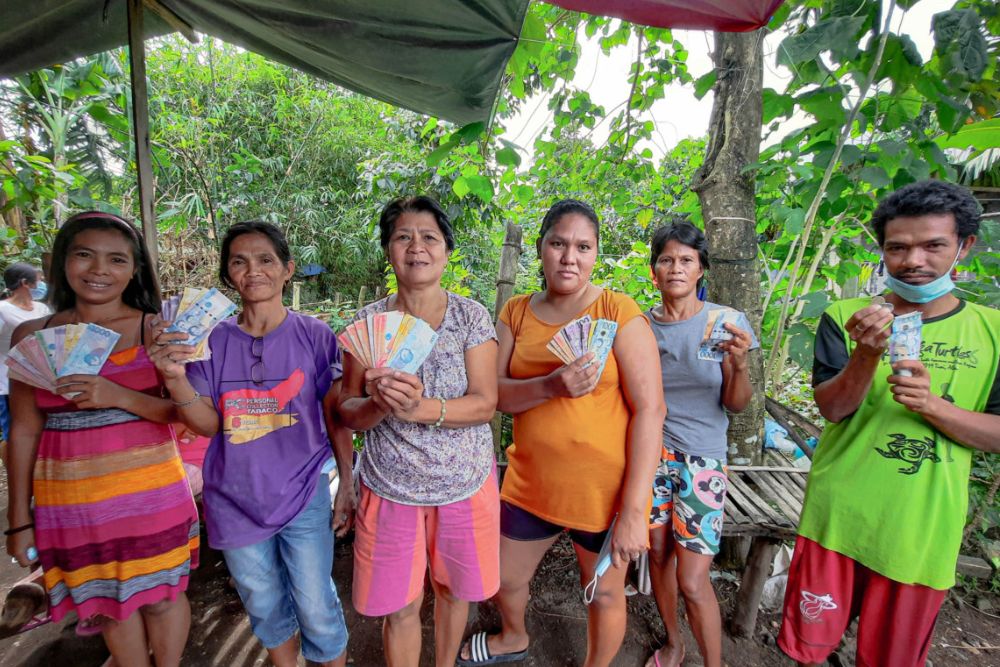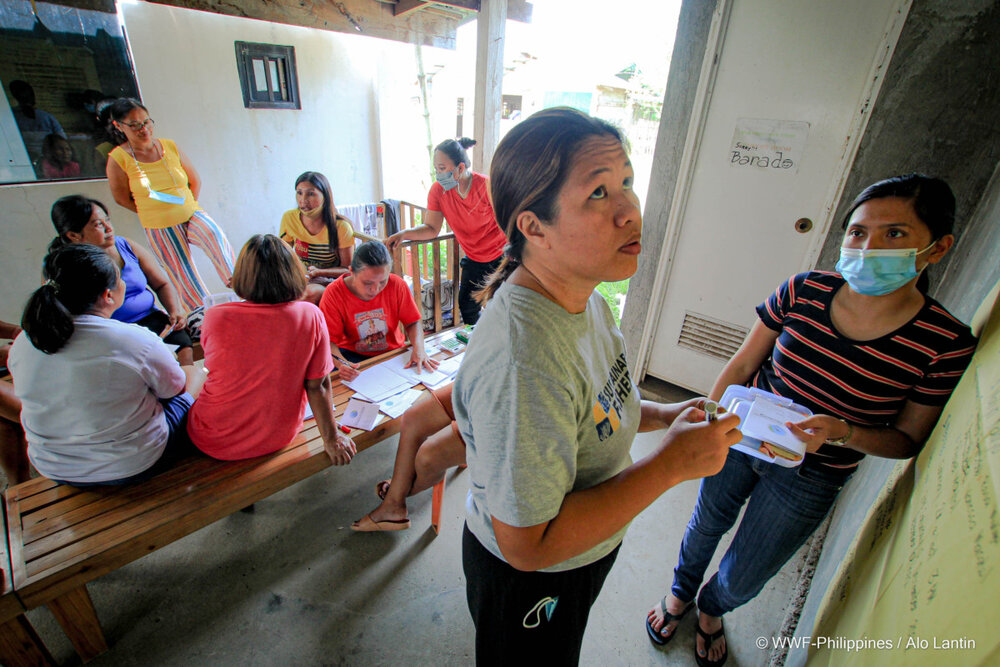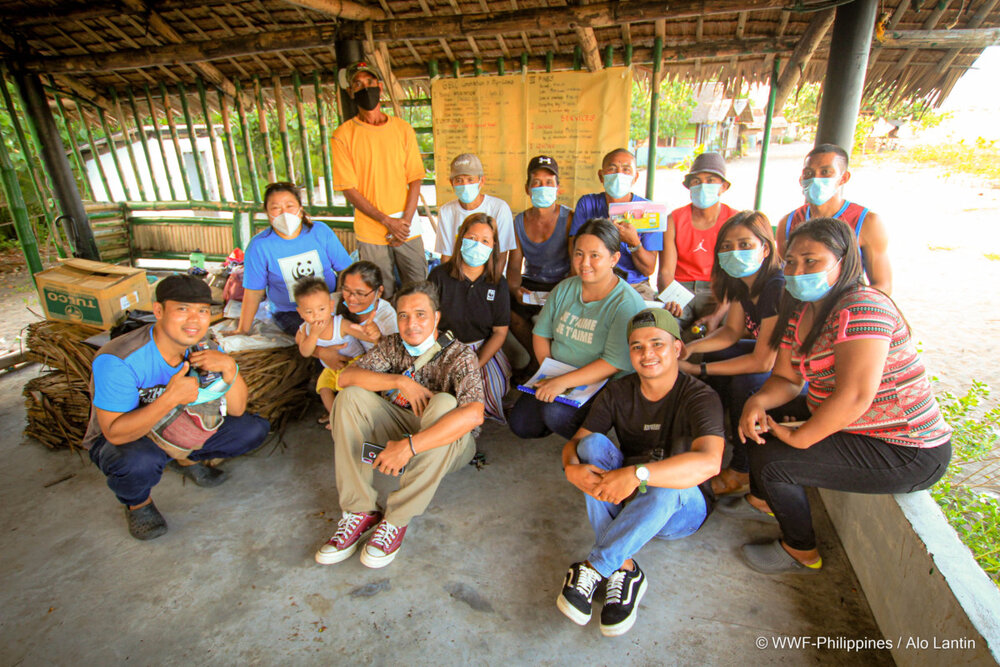The Philippines – Across the Philippines, coastal communities are coming together to prepare for the current climate crisis.
A total of 24 Group Savings and Loans Councils have been set up in coastal communities in Lagonoy Gulf and Mindoro Strait as of the end of the second quarter of 2022. A total of over 700,000 pesos have also been saved through these councils.
The Group Savings and Loans Councils, or GSLCs for short, were established with the support of the World Wide Fund for Nature (WWF) Philippines’ Sustainable Tuna Partnership 2 (STP 2) project.
The GSLCs are a means for communities to pool together resources in a central fund. These funds can be used to support members in need, or to finance the purchasing of equipment or construction of facilities needed by the community.
By acting as financial buffers, GSLCs help communities weather livelihood shocks brought about by changing climates.
“These GSLCs are very important because many of the fishers we work with have problems they cannot solve on their own. By being part of a GSLC, our partner fishers can rely on their fellow members to support them in their time of need,” said STP 2 Field Operation Manager Marietta Calacal.
WWF-Philippines has worked with coastal communities in Lagonoy Gulf and Mindoro Strait since 2011. The conservation organization has lobbied for the interests of small-scale fishers as part of its goal of incorporating sustainability into the countries’ yellowfin tuna fisheries.
The goal of the STP 2 team was to establish 21 GSLCs by 2024. The project team has since overtaken their goal.
“We are very glad to have passed the original goal of the STP 2 project first started earlier this year. That said, we do not simply leave our communities upon reaching our goals. We will continue to support them as we proceed into the future,” said STP 2 Program Manager Joann Binondo.
The challenge for both the STP 2 team and for its partner communities is to ensure the sustainability of the GSLCs. With these groups to fall back on, coastal communities are better equipped to face the climate crisis.

